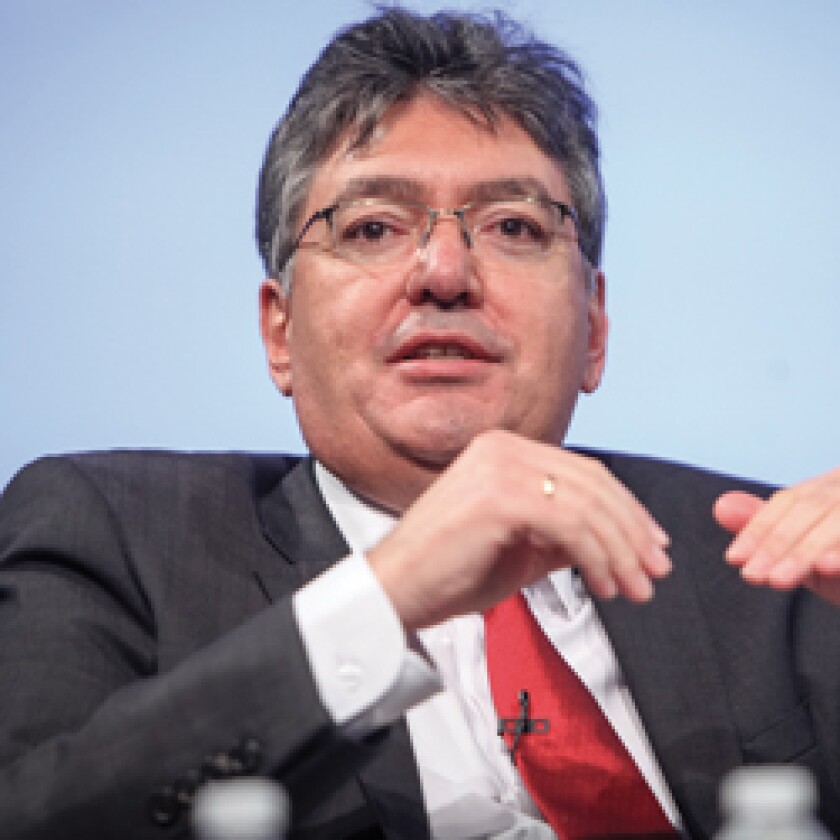Colombia’s economy went from strength to strength, in what Pablo Goldberg, head of emerging markets research at HSBC, says was “a very nice process of improvement of their economy, with fiscal consolidation”.
The small, open economy received kudos from analysts for dealing well with capital inflows when the tide of liquidity caused by quantitative easing by major central banks was going out. “I think they’ve been very good at dealing with the inflows. They continued with the fiscal consolidation. They have been pushing reforms over the course of the last years on many fronts. This has put the country in a much more solid position to confront a potential deterioration of the external environment,” says Goldberg.
Mario Robles, an analyst with Commerzbank, says that the country has been very successful in attracting foreign capital and putting it to good use. “I saw a lot of flows from foreign investors going into the Colombian market in a fashion that could resemble what Mexico did. Investors now are starting to play along with the locals in the local market, which is a very good achievement for Colombia,” he says.
Rodica Glavan, fund manager, emerging markets fixed income at Insight Investment Management, says that the Colombian government “didn’t squander the windfall from the commodity boom years but used it to set up a stabilization fund, introduced fiscal discipline by ensuring that expenditures are tied to revenues, and implemented a fiscal rule that keeps the structural budget deficit to just 2% of GDP.”
Some analysts have warned that this year Colombia’s overall budget deficit could exceed the government’s prediction of 2.4% of GDP for this year. But for Robles, this would not be a big problem as long as it is not a signal that it is a permanent trend. “We are in extraordinary years. If the government can do something to bring growth and stability to the economy and financial markets through a moderate increase in fiscal spending, I think it is reasonable to do”, he says.
The biggest challenge for Colombia is dealing with success. Goldberg warns that, as capital inflows slow down, the government has to keep the economy competitive, with an exchange rate that is still appreciated. The challenge of keeping economic growth on track is not exclusive to Colombia, Robles points out, but “managing orderly growth during the second half of the year will be very important to preserve the image that Colombia is going to be one of the top performers along with Mexico, Peru and Chile. They are in the 4% growth club. They need to do a good job in order to stay in that club.” —Antonia Oprita
EM INTERVIEW Colombia finance minister Mauricio Cárdenas is particularly proud of the approval of a major tax reform late last year. “This was the first structural, revenue-neutral tax reform in more than 20 years,” he tells Emerging Markets. Under the reform, personal income taxes were raised, the administration of value added tax was simplified by generalizing the use of a universal tax rate of 16% instead of the previous seven different rates, and payroll taxes earmarked for social spending were replaced by a new tax on profits. Its effects were dramatic, according to Cárdenas, with nearly 1 million Colombians moving from informal into formal jobs. “We expect the reform to reduce by 10 percentage points the size of the informal sector (from 60% to 50% of employment). In addition, a much more progressive structure of personal income taxes will reduce inequality,” he says.
Over the past year, the government has faced protests in rural areas, with Colombian farmers negatively affected by low prices, bad crops and high costs of fertilizers. Cárdenas says there is an ongoing dialogue with farmers on how the government can help them by boosting competitiveness and productivity, which has resulted in additional funds from the budget for the sector.
Looking ahead, he sees “risks associated with the global economy, and in the regional sense dependence on the performance of our neighbours” as the main challenges for Colombia’s economy. “Our challenge is to continue to grow at rates that are close to our potential (4.6%), despite what happens abroad,” he says. “The fast surge of the middle class helps us in expanding the domestic market. The investments we are undertaking in transport infrastructure will help us boost competitiveness. The road programme now under implementation will increase our potential growth rate by 0.8 percentage points.”
The country has seen a sustained increase in oil production in the past six years, with levels of more than 1 million barrels a day this year. But, Cárdenas points out, the IMF considers that Colombia has a low public finance vulnerability to a decline in commodity prices, due to its low public debt and a sustainable primary balance. “We have saved much of the recent boom” in commodity prices, he says. —A.O.
